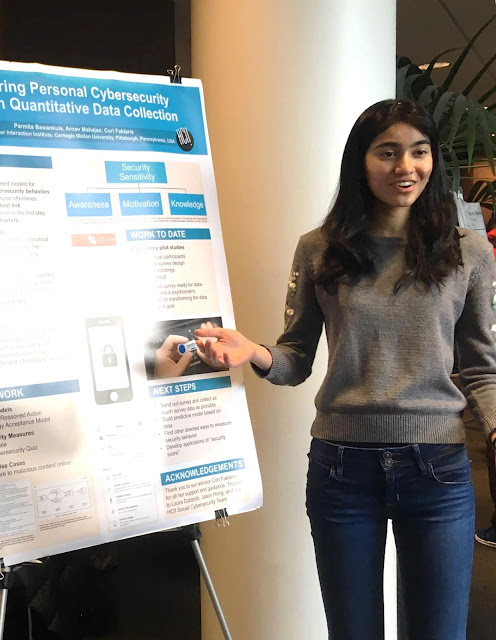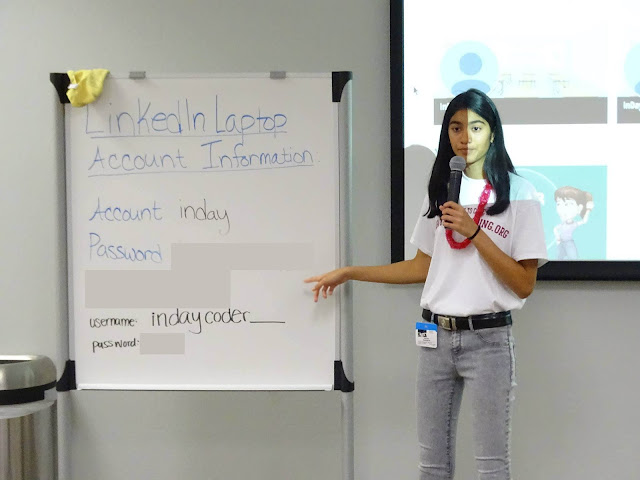First Research Project
This semester, I did an independent study project and presented at the end-of-semester "Meeting of the Minds" event held at Carnegie Mellon's School of Computer Science.
Throughout the semester, I worked with my advisor, Cori Faklaris--a Ph.D. student and Arnav Mahajan--another undergraduate, on our research project in the Human-Computer Interaction Institute.
Our overall goal was to find a way to predict user behavior regarding their personal cybersecurity actions. While computer applications may have many strong security measures in place, it is often the end user who is the weakest link. (They may accidentally share passwords or leave data unsecured)
Despite the multitude of different cybersecurity tools that exist (Password managers, Two Factor Authentication, general caution and awareness online, etc.) many users do not put these tools into practice. Prior research into the matter elaborates on many different theories and models of how users adapt to new technologies. One of the most relevant describes the notion of Security Sensitivity--a combination of a user's awareness, motivation, and knowledge about cybersecurity tools and practices.
Our exploratory study attempts to measure this said Security Sensitivity and ultimately, as the project continues, use this measure to predict a user's risky behavior before it occurs.
Read more about how we did this and our next steps in the poster below!
Throughout the semester, I worked with my advisor, Cori Faklaris--a Ph.D. student and Arnav Mahajan--another undergraduate, on our research project in the Human-Computer Interaction Institute.
Our overall goal was to find a way to predict user behavior regarding their personal cybersecurity actions. While computer applications may have many strong security measures in place, it is often the end user who is the weakest link. (They may accidentally share passwords or leave data unsecured)
Despite the multitude of different cybersecurity tools that exist (Password managers, Two Factor Authentication, general caution and awareness online, etc.) many users do not put these tools into practice. Prior research into the matter elaborates on many different theories and models of how users adapt to new technologies. One of the most relevant describes the notion of Security Sensitivity--a combination of a user's awareness, motivation, and knowledge about cybersecurity tools and practices.
Our exploratory study attempts to measure this said Security Sensitivity and ultimately, as the project continues, use this measure to predict a user's risky behavior before it occurs.
Read more about how we did this and our next steps in the poster below!




Comments
Post a Comment